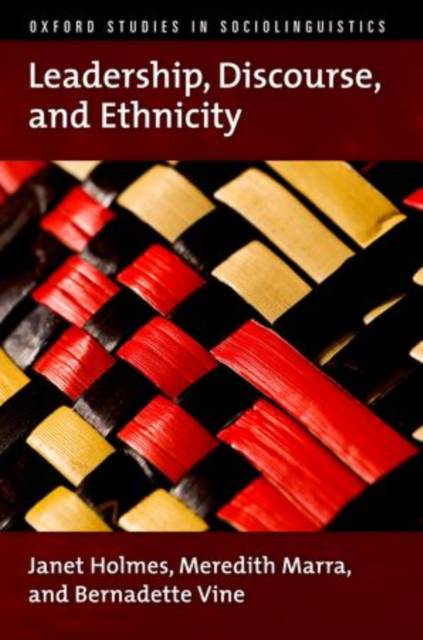
- Afhalen na 1 uur in een winkel met voorraad
- Gratis thuislevering in België vanaf € 30
- Ruim aanbod met 7 miljoen producten
- Afhalen na 1 uur in een winkel met voorraad
- Gratis thuislevering in België vanaf € 30
- Ruim aanbod met 7 miljoen producten
Zoeken
€ 164,45
+ 328 punten
Uitvoering
Omschrijving
This is the first book in the field of workplace discourse to examine the relationships among leadership, ethnicity, and language use. Taking a social constructionist approach to the ways in which leadership is enacted through discourse, Leadership, Discourse, and Ethnicity problematizes the concept of ethnicity and demonstrates the importance of context-particularly the community of practice-in determining what counts as relevant in the analysis of ethnicity. The authors analyze everyday workplace interactions supplemented by interview data to examine the ways in which workplace leaders use language to achieve their transactional and relational goals in contrasting "ethnicized" contexts, two of which are Maori and two European/Pakeha. Their analysis pays special attention to the roles of ethnic values, beliefs and orientations in talk.
Specificaties
Betrokkenen
- Auteur(s):
- Uitgeverij:
Inhoud
- Aantal bladzijden:
- 216
- Taal:
- Engels
- Reeks:
Eigenschappen
- Productcode (EAN):
- 9780199730759
- Verschijningsdatum:
- 5/12/2011
- Uitvoering:
- Hardcover
- Formaat:
- Genaaid
- Afmetingen:
- 239 mm x 163 mm
- Gewicht:
- 430 g

Alleen bij Standaard Boekhandel
+ 328 punten op je klantenkaart van Standaard Boekhandel
Beoordelingen
We publiceren alleen reviews die voldoen aan de voorwaarden voor reviews. Bekijk onze voorwaarden voor reviews.











